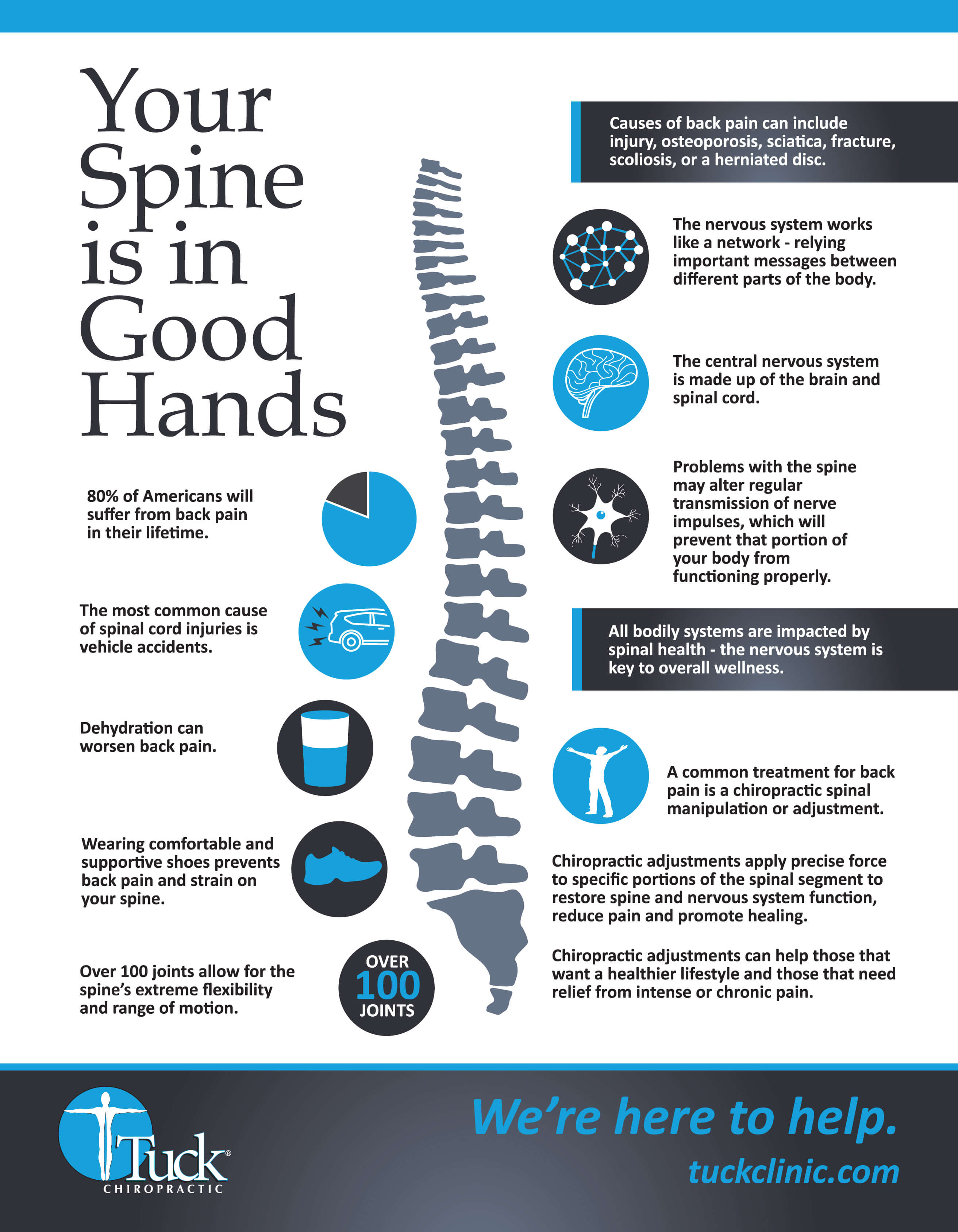The Duty Of Nourishment In Neck And Back Pain Management: Foods To Consume And Prevent
The Duty Of Nourishment In Neck And Back Pain Management: Foods To Consume And Prevent
Blog Article
Personnel Writer-Singer Wheeler
When it comes to handling your pain in the back, the food choices you make can substantially impact how you really feel each day. Visualize having the ability to ease your pain merely by adjusting what you eat. By comprehending the function of nutrition in back pain administration and recognizing which foods to include or steer clear of, you can take proactive actions towards a much healthier and much more comfortable way of life. The link between nutrition and back health and wellness is more profound than you may recognize-- let's explore just how specific foods can either calm or aggravate your neck and back pain.
Relevance of Nourishment in Back Pain
Nutrition plays an essential function in taking care of pain in the back. Your diet plan can dramatically affect swelling degrees and general pain degrees in your back. Consuming a well balanced diet plan abundant in nutrients like vitamins D and K, calcium, magnesium, and omega-3 fats can help in reducing swelling and strengthen bones, which are essential for back health.
Additionally, preserving a healthy weight with proper nourishment can minimize anxiety on your spine, decreasing the danger of neck and back pain.
Moreover, why chiropractic care is bad like anti-oxidants located in vegetables and fruits can help deal with oxidative stress and anxiety and promote recovery in the body, consisting of the back muscles and spine.
On the other hand, taking in too much quantities of processed foods, sugary beverages, and unhealthy fats can add to swelling and weight gain, intensifying back pain.
Foods to Consume for Back Health
To support a healthy and balanced back, incorporating nutrient-rich foods right into your everyday meals is vital. Consisting of foods high in anti-oxidants like berries, spinach, and kale can help reduce swelling in your back, relieving discomfort and pain. Omega-3 fats found in fatty fish such as salmon and mackerel have anti-inflammatory residential properties that can profit your back wellness.
Additionally, taking in nuts and seeds like almonds, walnuts, and chia seeds supplies crucial nutrients like magnesium and vitamin E, which support muscle feature and lower oxidative anxiety. Incorporating lean healthy proteins such as poultry, turkey, and tofu can help in muscle mass repair and maintenance, advertising a solid back.
Do not neglect to consist of dairy or fortified plant-based alternatives for calcium to support bone health. Finally, moisturize with a lot of water to keep your spinal discs moisturized and working efficiently. By including these nutrient-dense foods in your diet, you can nurture your back and support general spinal health and wellness.
Foods to Avoid for Pain In The Back
Go with preventing refined foods high in added sugars and trans fats when seeking relief from neck and back pain. integrative therapy of foods can contribute to inflammation in the body, which may aggravate back pain. Say no to sugary snacks sweet, breads, and sweet beverages, in addition to fast food products like hamburgers, french fries, and fried chicken that are commonly filled with trans fats.
Furthermore, steer clear of foods including high levels of refined carbohydrates, such as white bread, pasta, and pastries, as they can spike blood glucose degrees and potentially worsen swelling in the body.
It's likewise important to restrict your intake of foods high in saturated fats, like red meat and full-fat milk products, as they can add to swelling. Refined foods like delicatessens meats, chips, and packaged snacks are often high in saturated fats and should be consumed in small amounts.
very low back pain
To conclude, taking note of your diet regimen and making smart food options can have a substantial impact on managing neck and back pain. By incorporating nutrient-rich foods like berries, fatty fish, nuts, and lean healthy proteins, and staying clear of processed and sweet products, you can help reduce swelling and support overall back wellness. Bear in mind, what you consume plays an essential duty in how you feel, so ensure to prioritize your nutrition for a much healthier back.
